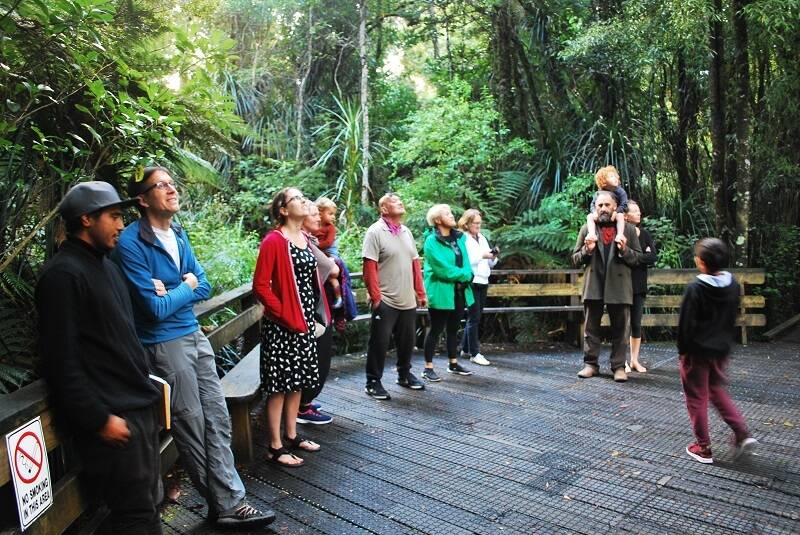Speaking for the (kauri) trees
Kauri plays a significant role as a national icon in Aotearoa yet the species is under threat. Auckland based The Kauri Project received major grant funding through the New Zealand National Commission for UNESCO last year to develop a platform for creative action to protect this precious taonga across the kauri lands region.
The Kauri Project
At the beginning of May the group invited a network of kauri advocates and kaitiaki: people and organisations who have a vested interest in care and protection of kauri ecosystems, to a hui in Waipoua Forest. The two days of discussion covered a broad range of topics, from awareness-raising ideas to how to find a good relationship between iwi and science.
The purpose of the hui was to make connections between Northland iwi, the Trust and other agencies who are acting to address kauri dieback, with the view to holding further events in 2018 and early 2019. The wānanga will bring artists, scientists, iwi and other caretakers and communicators to develop and create a shared understanding of the needs of the forest and find creative ways to take action based on these shared understandings.
“We aim to provide knowledge and build informed dialogue within the community,” says Kauri Project co-curator Chris McBride. “Ultimately we would like to see kauri receive legal protection as a national taonga in the same manner as Te Uruwera, pounamu and the Whanganui River.
“Kauri are critical to the survival of the ecosystem they live within. This taonga is as beloved as the kiwi and quintessential to representing what it is to be from Aotearoa/New Zealand. The threat to this unique bio-diverse landscape has been well documented, however, many across the country are still unaware of the potential collapse that could occur if we do not find a solution to Phytopthora Agathidicida (kauri dieback). Around 19 specific plants and a diverse mix of insects, birds and micro-organisms rely on kauri to survive. It is imperative we all – scientists, mātauranga experts, artists and community – work towards best-practice action to save kauri for future generations to enjoy.”

